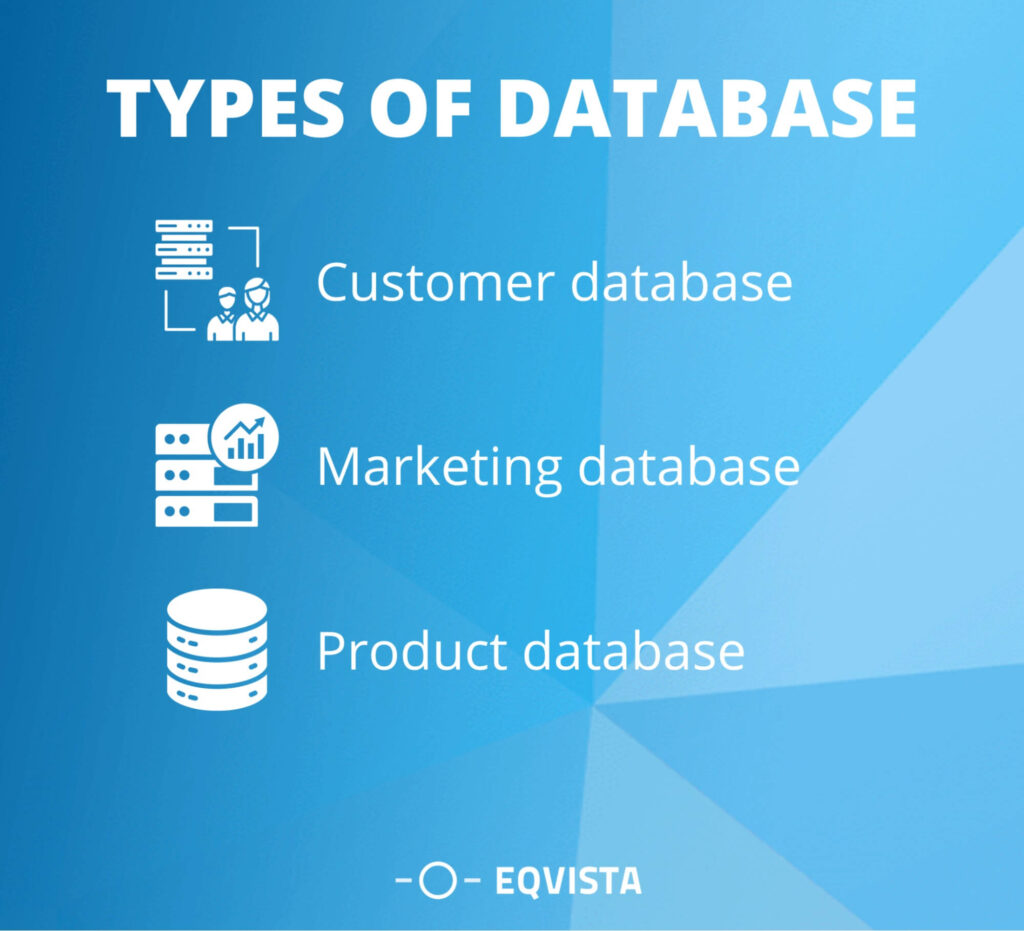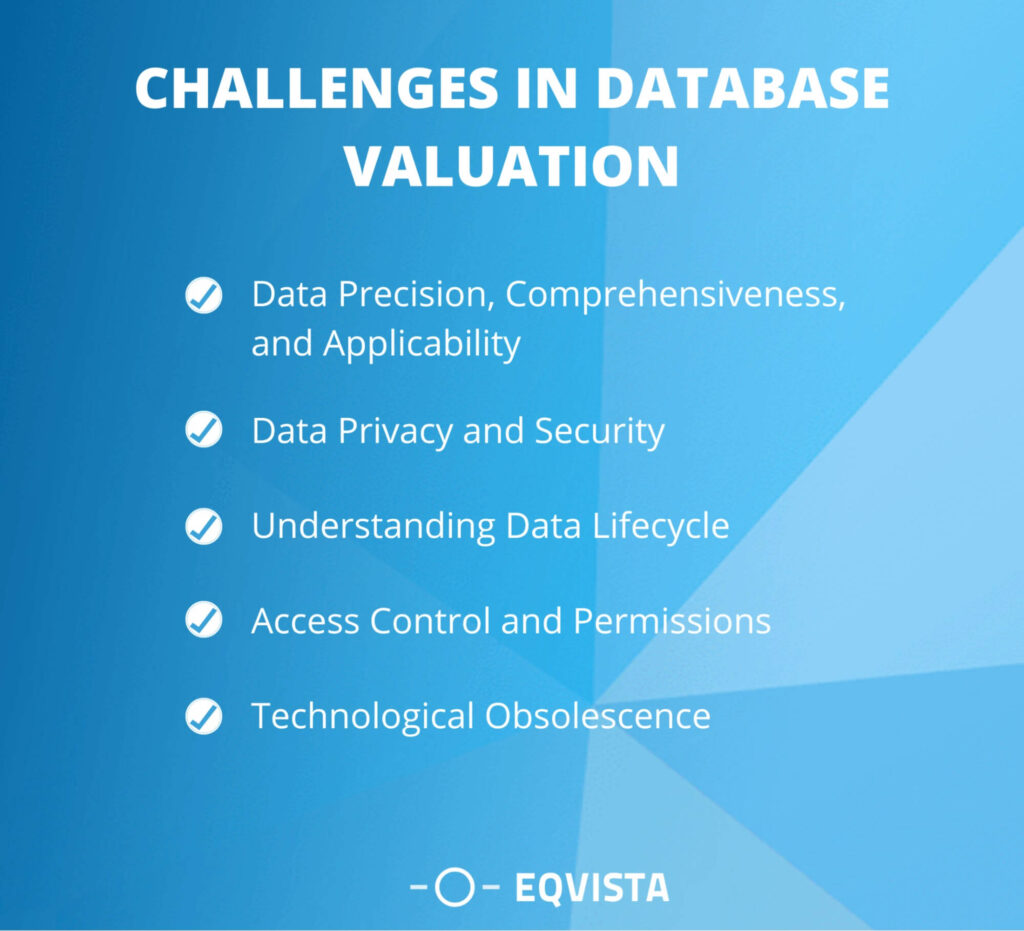Valuing Database: How to Quantify and Monetize Your Database
This article insists on the importance of databases as valuable assets in a company, types of database and factors that influence database value.
In the digital age, data is a useful resource for organizations because it gathers enormous amounts through client interactions and transactions. These data are stored and organized in databases, which can lead to new insights, better decision-making, and corporate expansion.
The value of a database is realized when its data is used to provide practical benefits for the organization. However, estimating and monetizing its worth can be difficult because its influence on an organization’s success could not be well captured by conventional financial measurements.
This article insists on the importance of databases as valuable assets in a company, types of database, factors that influence database value, database valuation methods.
Database and its valuation
A database is a structured set of information that is managed, accessed, and arranged electronically. Large amounts of information may be securely and effectively stored, managed, and retrieved with this system. Numerous applications, including websites, mobile apps, business systems, and more, leverage databases.
Understand database
A database is a structured collection of data that has been set up and kept to facilitate effective information management, retrieval, and manipulation. Databases are a crucial component of contemporary software systems since they are used to store and manage data for several applications.
Importance of database as valuable asset in company
Databases are indispensable assets in contemporary businesses, and their significance cannot be emphasized. They provide the framework for organizing, keeping, and retrieving the enormous volumes of data that businesses require to function effectively.
Here are some of the main factors that make databases valuable and necessary for businesses:
- Databases offer a consolidated and organized method of storing numerous types of data, including financial data, customer information, sales records, inventory data, and a lot more.
- It gives businesses the ability to gather and examine massive amounts of data, enabling them to find patterns, trends, and insights that enhance decision-making, streamline corporate operations, and boost competitiveness.
- Business intelligence and analytics systems are built around databases.
- Databases are essential parts of CRM (customer relationship management) systems since they hold data about customers, their past purchases, and their contacts with the business.
- Databases allow for streamlined, effective corporate procedures.
- They are essential to data security.
- It provides capabilities to secure data, track changes, and keep audit trails, assisting businesses in adhering to these compliance standards.
Types of Database
Businesses can use a well-maintained customer database as a strong tool to make educated decisions and customize their products and services to match the needs of customers.
Databases are categorized based on their data model, architecture, and intended use. Here are some common types of databases:

- Customer database – A customer database is a structured set of data that includes details about the clients, customers, or users of a specific company or organization. It helps organizations improve their services, marketing, and overall customer experience by acting as a valuable resource for storing and managing client-related information.
- Marketing database – Marketers manage and evaluate their marketing campaigns by using marketing databases, which are centralized repositories of client and prospect information. It acts as a thorough database of information about clients, leads, and other pertinent entities to aid in marketing efforts and decision-making.
- Product database – Creating a product database entails organizing and storing information about diverse products in an organized and accessible manner. A Relational Database Management System (RDBMS) like MySQL, PostgreSQL, or SQLite, or even a NoSQL database like MongoDB, can be used to create the database, depending on the requirements of the application.
Understand Database Valuation
The process of figuring out a database’s financial worth or economic value is referred to as database valuation.
Databases are crucial tools for companies and organizations as they store and organize vital data including customer information, product inventory, financial records, and much more. Accurate database valuation is critical in a variety of contexts, including mergers and acquisitions, financial reporting, taxation, and business planning.
How databases drive customer insights, operational efficiency, and competitive advantage?
Databases are essential to helping organizations gain insights into their customers, run more efficiently, and gain a competitive advantage. They serve as data archives for both organized and unstructured data, enabling businesses to manage and analyze massive amounts of data.
Effective use of this data can result in a number of major advantages such as operational efficiency, competitive advantage, etc.
Factors that influence Database Value
Several factors determine the value of a database, which might vary based on the context and the unique business scenario. Here are some of the main elements that affect a database’s value:
- Data quality – The value of a database is significantly influenced by the correctness, dependability, and completeness of the data housed inside. Having high-quality data guarantees that the data in the database is reliable and suitable for analysis, decision-making, and other uses.
- Size – The amount of data in the database might also have an impact on its worth. Larger databases with large datasets may provide more insights and a wider range of analytical options.
- Relevance – The data must be pertinent to the needs and objectives of the organization. A database with accurate data that is in line with the business objectives is more valuable than one with out-of-date or irrelevant information.
- Uniqueness – The distinctive qualities or properties that distinguish one database from another are referred to as its uniqueness. Depending on the goal, layout, and content of the database, these distinctive characteristics can change.
Database valuation methods
Database valuation methods relate to the different approaches used to determine the monetary value of a database or data asset. Databases store significant information and are critical assets for many businesses and organizations.
In situations like mergers and acquisitions, financial reporting, licensing agreements, and legal challenges, valuing databases can become vital. There are several approaches for determining the worth of a database, and the best method relies on the context and goal of the assessment.
Here are several ways for valuing databases that are commonly used:
Market approach Method For Valuing Database
The market approach values the database by comparing it to similar datasets that have previously been sold or licensed. Valuators may examine databases with comparable datasets or databases from the same industry. The problem with this strategy is that databases are typically unique, making it difficult to locate directly comparable operations.
Income approach Method For Valuing Database
The income approach evaluates a database’s worth in terms of its ability to bring in additional income or reduce expenses. The process entails predicting the anticipated cash flows from the database, discounting those future cash flows to their present value, and finally summing them up.
Businesses with a strong data monetization focus or a proven track record of database revenue generation frequently employ this strategy.
Cost approach Method For Valuing Database
This approach gauges a database’s worth by considering how much it would have cost to build or buy it. Initial development costs, hardware and software costs, data collecting costs, and ongoing maintenance costs are all taken into account.
This method might not accurately indicate the database’s market value, particularly if it includes proprietary or unique data.
How to monetize Databases?
The process of monetizing a database entails figuring out how to make money or get value from the information it incorporates. The following are some typical ways to make money from databases.
Direct monetization method
A database’s direct monetization refers to techniques or approaches that generate revenue directly from the database. When monetizing a database, it is critical to address data protection and regulatory requirements, as some forms of data may have restrictions on usage and sharing.
Maintaining the confidence of your consumers and clients also depends on guaranteeing the security and integrity of the data.
Indirect monetization method
The term indirect monetization describes the process of making money from a database without actually selling users or users’ access to it. You can use the database’s data to create value and earn money through a variety of ways rather than charging users or clients directly for access.
Challenges in Database Valuation
Valuing a database can be a difficult undertaking due to the numerous aspects that can influence its worth. Here are some difficulties encountered while attempting to assess a database’s worth.

- The database’s worth can be considerably impacted by the precision, comprehensiveness, and applicability of the data. Poor data quality might result in incorrect insights and choices, which lowers the database’s total value.
- Databases frequently include private and sensitive data. It can be difficult to ensure data privacy and security because any potential breaches or unauthorized access could reduce the database’s value and expose the company to legal and reputational issues.
- It is crucial to comprehend the collection, storage, management, and usage of data in order to value a database. Data governance procedures that are inconsistent might have an impact on data compliance and quality.
- Database valuation heavily relies on knowing who can access the data and what they can do with it. Access restrictions or ambiguous usage permissions may prevent the database from reaching its full potential and worth.
- The underlying technology of the database could become old, making it difficult to maintain, scale, or integrate with contemporary systems. Database value may suffer from technological obsolescence.
Importance of data management and maintenance in database valuation
Data management and maintenance are critical parts of database value for various reasons. A well-kept and managed database makes a substantial contribution to the overall worth and effectiveness of a business.
- Making informed judgments requires access to accurate and trustworthy data. An organization may depend on the data housed in the database by maintaining data correctness and integrity through routine maintenance, resulting in more confident and precise decision-making processes.
- Data quality can be improved by using data management techniques like cleansing and validation. High-quality data enables superior analytics, reporting, and business insights. Additionally, it reduces the possibility of errors and discrepancies brought on by erroneous data.
- Implementing security controls to prevent unauthorized access and data breaches is a crucial part of proper data management. Strong data security and privacy standards enhance the database’s value and boost stakeholder confidence in the company.
- The organization’s compliance with pertinent data protection laws and industry requirements is ensured by effective data management. The key to avoiding fines, legal troubles, and reputational harm is to comply with compliance regulations.
Maximizing Your Database Worth with Eqvista
A database’s value can be determined by evaluating both its quantitative and qualitative components, which can be a challenging procedure. Other businesses or people can pay a fee to access your database. A one-time fee or a recurring subscription arrangement are both acceptable. It’s important to keep in mind that a database’s worth is also influenced by its relevance, accuracy, and usefulness to potential users.
Stay up to date on the latest data management trends to ensure that your database remains a valued asset in an ever-changing digital landscape. Consult Eqvista’s specialists for assessing your database! To learn more about our services, get in touch with us right away. Sign up to use our app, which is completely free.
Interested in issuing & managing shares?
If you want to start issuing and managing shares, Try out our Eqvista App, it is free and all online!
